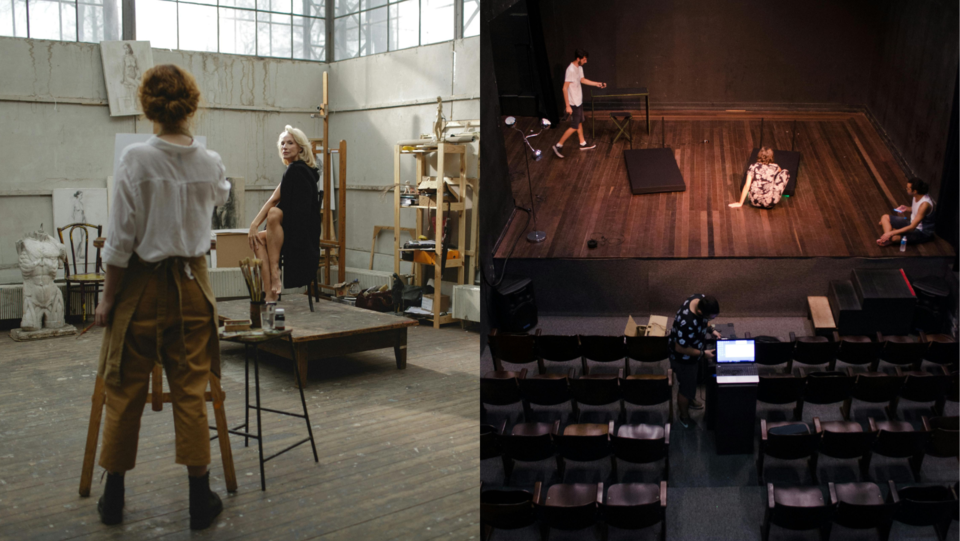With arts and culture groups struggling to find and retain spaces in which to work and perform, Vancouver is looking at changes to help its artists and performers navigate local bureaucracy and property issues.
Barriers the groups face include a lack of venues owned by artists or cultural groups; rising rent; spaces traditionally used by the arts community getting redeveloped; and difficulty navigating official channels once a potential location is found.
City staff are now tasked with looking at creating a position for someone to guide cultural organizations through municipal administration, launching a Cultural Land Trust, and updating regulations for groups looking to take over spaces that weren't intended as arts venues.
This won't be the first report; the city had one in September 2019 on similar issues stalled by the pandemic. Coun. Christine Boyle, who put forward a motion to reignite work on the issue, is hopeful tangible changes are forthcoming.
Process to get new space 'onerous' and 'expensive'
"There's some renewed focus on a challenge that has only grown since 2019," she tells V.I.A. by phone.
"One of the things I heard was we have these ideas, we have a good plan and we need to make sure we are implementing it."
The Little Mountain Gallery (LMG) recently went through an ordeal to reopen in Gastown after closing its original Mount Pleasant location due to an incoming development. Executive director Brent Constantine says the struggle to navigate municipal policies is real and costly.
LMG closed the original venue in 2021; they found a new location in early 2022 and, in early 2023, the group hosted an open house as they worked their way through the system. They didn't officially reopen, "more legal than we ever have been," until March 2024, says Constantine.
"The development process is so onerous and so expensive and requires such a level of expertise that there's a real need for support," he says.
Hidden costs include hiring expert consultants
One of the proposals in Boyle's motion is to have a staff member in the city's development and building department serve as a liaison to guide groups. Constantine describes the red tape his group had to address as "weird riddles."
Solving those "riddles" often means hiring a consultant, which can be costly.
In one case, LMG was asked how many parking spaces would be provided at their new location in a heritage building in Gastown.
"We had to hire a consultant who knows the parking code," he says."It turned out we didn't need parking."
In addition to the cost of hiring a consultant, the process took three weeks, during which time LMG was paying for rent and other operational fees.
"The fact we were able to stay and not go bankrupt—we made it through, there's a lot of people who aren't as lucky," Constantine says.
Boyle says there shouldn't be an expectation that small, not-for-profit arts and cultural groups are experts in local building codes.
"We should be making it easier for them to exist, stay and expand."
What is a Cultural Land Trust?
If spaces for arts and cultural groups are owned by that community, then several issues can be avoided (like rent and redevelopment) but buying property in Â鶹´«Ã½Ó³»isn't simple.
A Cultural Land Trust would act like other land trusts, with group ownership of spaces so that they're permanent and stable.
"The idea of a Cultural Land Trust (CLT) is for arts and culture organizations together to own space," says Boyle. "To move out of the vulnerability of being tenants and have arts and culture spaces collectively owned by a governing body of the arts and culture sector."
She points to 221A, a group that just opened a new 21,000 square foot artist space in downtown Vancouver; the group was able to secure grants from government agencies and other sources.
The city owns several cultural spaces, like The Orpheum Theatre and the Â鶹´«Ã½Ó³»Art Gallery; those will be staying with the city, Boyle notes. The spaces the CLT would handle could be created through from developers or other grants.
Boyle says the CLT would predominantly focus on new development.
Policy changes and hermit crabs
Often arts and culture groups are not moving into new spaces; instead, they tend to take over vacated spaces like how a hermit crab moves into a shell left behind by a snail.
Constantine says these "unwanted spaces" aren't initially fully appropriate for artistic practices, but do become homes for arts groups.
However, city regulations often are specific about what can be done in commercial space, and an art gallery or crowded theatre doesn't often fit the bill. That's when change-of-use policies come into play.
While a guide would be useful to navigate the policies, as they are now, adjusting the change-of-use policies that pose a barrier to arts and culture groups would also help.
The next steps
While advocacy continues outside of the municipal government, the city's next step is to prepare the report, which will return to council at the end of 2024.
At the same time, the motion includes a section about the creation of an internal interdepartmental working group to make recommendations on the Cultural Land Trust.



